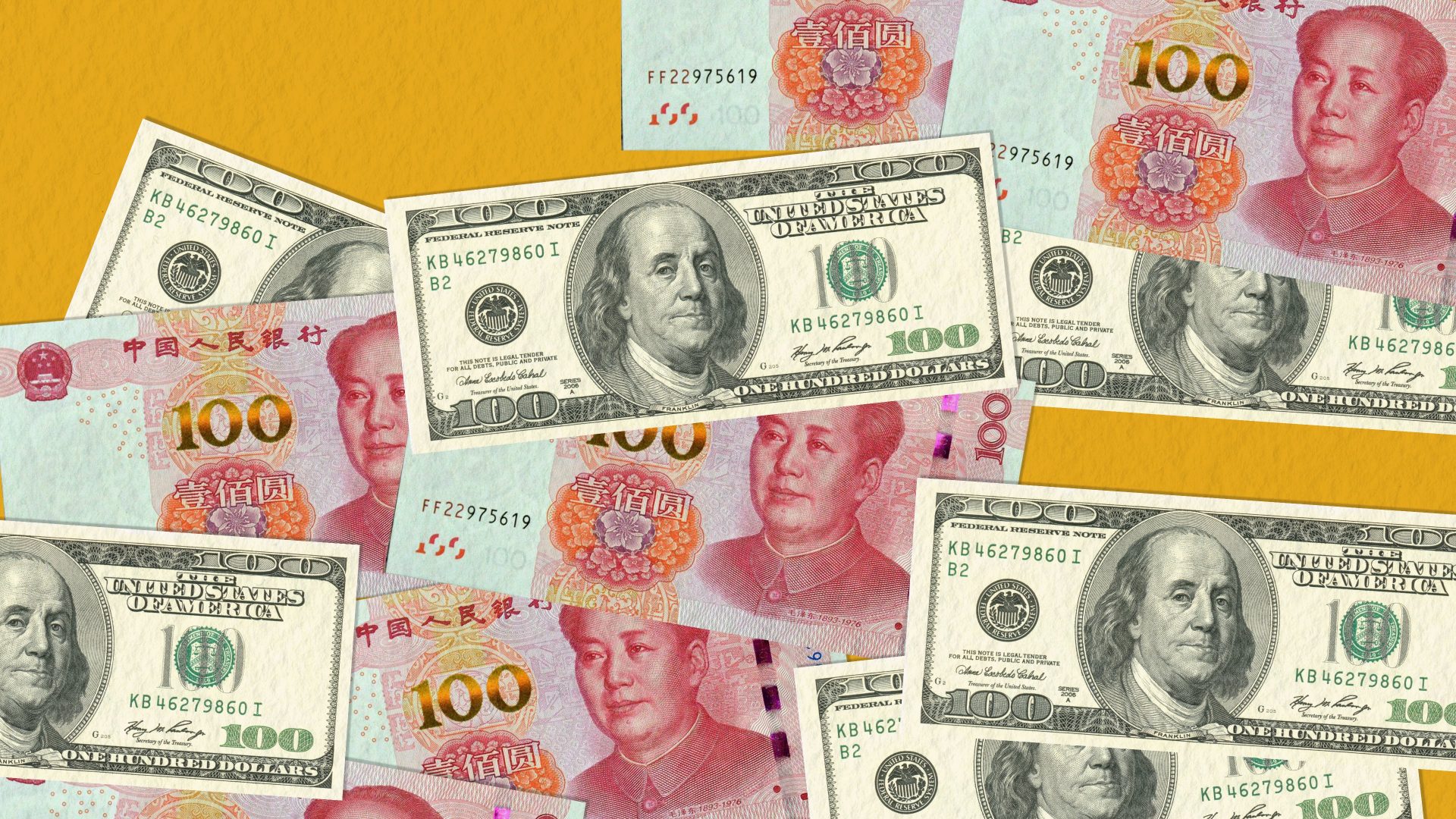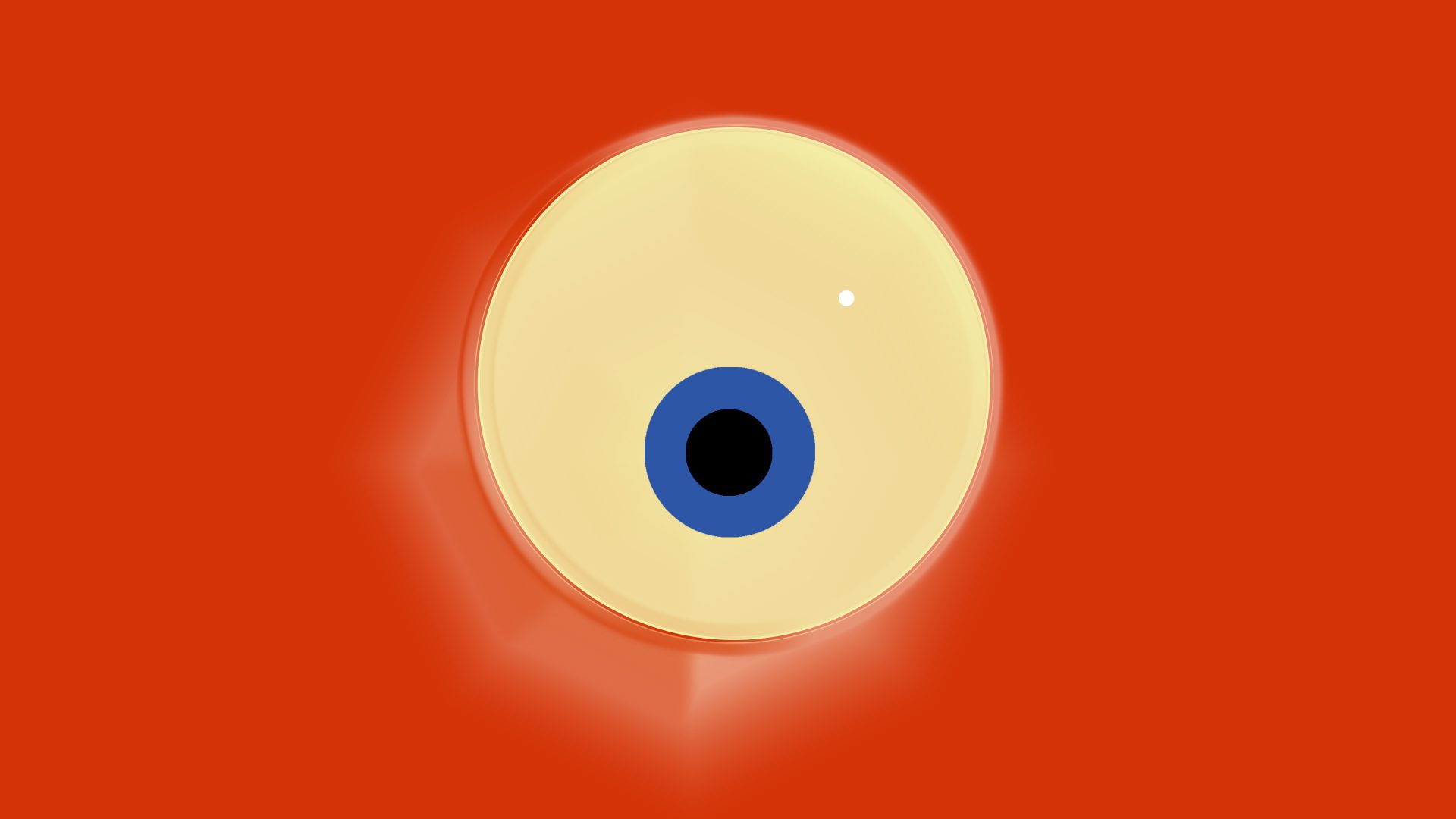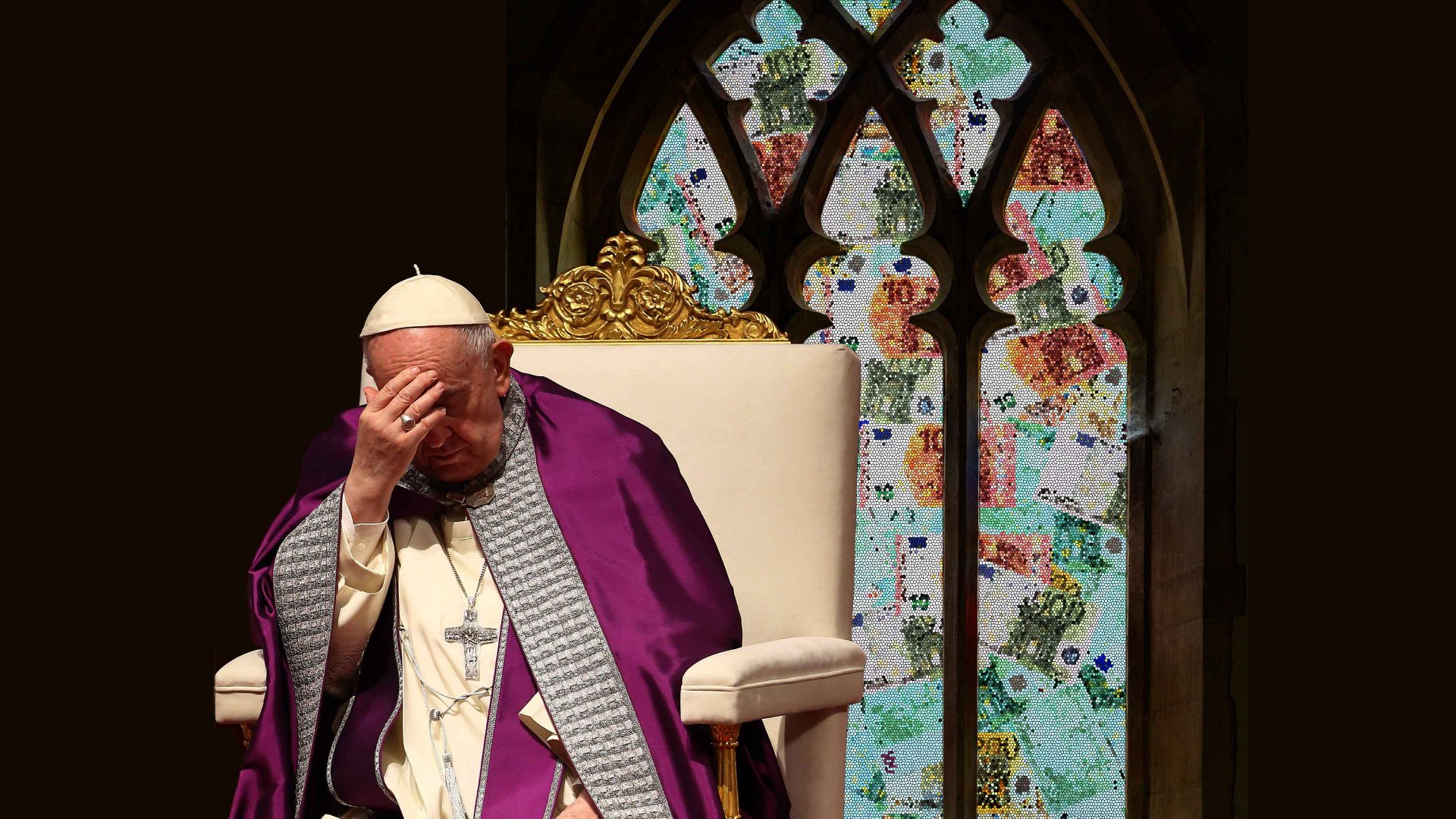When people on the left use the term “capitalist system”, it’s often to portray a generalised way of doing things between companies, workers and banks. But there’s a much more specific way in which the global, market-based economy is a “system”. Ever since it emerged in the 19th century, it has required both formal and informal structures between states to keep things going.
The Gold Standard, the 1944 Bretton Woods agreement that replaced it, and the World Trade Organisation are formal arrangements. Informally, though it is nowhere written down on paper, stability has always relied on one major economic power providing leadership – its currency becoming the global reserve, its bonds being the safest investments on earth.
What we’re living through – with the Ukraine war, the division of the world into sanctions and anti-sanctions blocs, and the declaration by Russia and China that the post-1945 order is over – is essentially a crisis of leadership. American power is in decline and China cannot assume leadership. As we watch the votes of smaller countries at the UN swing backwards and forwards between the pro-Russian and pro-Ukraine camps, those blinking lights – red, green and amber – are a kind of dashboard of systemic power.
We’ve been here before, of course. After the first world war, the essential question was: who will lead and regulate the system? The answer was America… probably.
And in that space of uncertainty during the inter-war period, we saw the Great Depression, fascism and eventually another war. Because until 1941 neither the US public, nor large parts of its political class, wanted to assume global leadership.
But today’s crisis is of a different magnitude. Charles Kindleberger, a historian whose life’s work was to study the inter-war economy, listed five things a leading country has to do: buy other countries’ goods at knockdown prices; lend to countries in distress; stabilise exchange rates; co-ordinate economic policies across the system; and be the lender of last resort. It was America’s unwillingness to do so, and Britain’s inability, he argued, that triggered the Depression of the 1930s. There has, in short, to be a big country resilient enough to take the economic strain. After 1945 that country was the US. Today, however, there is a crisis deep within capitalism itself. At the micro level, something is badly wrong. Since 2008, the only way to keep the engine turning has been to pump newly created money into the system, via quantitative easing; and to run up debt. When Lehman Brothers went bust, the combined debts of global households, firms and states were $147tn.
Today they total $256tn (£196tn) – and rising.
Yet, until February 24 2022, the essential architecture of the system held. The dollar was the global currency of last resort. The US remained the informal co-ordinator of macroeconomic policy. American debt was the safest form of investment.
The Ukraine war has thrown all these certainties into doubt. While the seizure of Russian yachts has made the headlines, the most spectacular sanction applied was America’s decision to freeze half of Russia’s foreign exchange reserves, which are held in dollars in western banks. It tanked the value of the rouble.
Though the rouble has been artificially pushed back towards its pre-crisis level, the cost to Russia is enormous: most of its trade with the West – except for oil and gas – is grinding to a halt. Major brands, banks and corporations have pulled out. Russia is heading for a devastating recession. Trade in everything from semiconductors to wheat to smartphones is shutting down between the rival powers.
Some believe the US dollar’s role as the global reserve currency is doomed. Zoltan Pozsar, an economist at Credit Suisse, has predicted the rise of a rival global trading system backed by the Chinese renminbi. Russia – unable to trade in dollars or euros, he argues – will form a symbiotic trading bloc with China, and smaller countries will begin to abandon the dollar.
Others scorn the idea. They point out that Britain and America, in their heydays, were economies with deep, resilient markets and subject to the rule of law. They had to single-handedly crisis-manage the world economy. They had to be prepared to see their bonds and currency circulate around the world.
China, says US economist Joseph Politano, is neither willing nor able to do these things. It’s not possible for foreigners to move capital in and out of China; nor does Beijing operate a legal system where you stand a fair chance of getting your money back if things go wrong. So becoming world leader is not just about size. It took two decades, says Politano, for the dollar to become the reserve currency.
For now, I side with the sceptics. What we’re seeing is a new kind of crisis – where American power is weaker, but in which it is impossible for China to emerge as the leading capitalist power. If it wanted to do so, it would have to liberalise its financial markets, democratise its politics and separate the powers of the executive, judiciary and parliament.
Much more likely is that China becomes the leader of the unfree world, and puts pressure on countries that want to be in it to think and act according to totalitarian diktat. So this is not just another cold war. It is a profound fragmentation of the global economy, with little chance of a return to normal.
What that means was best summed up by the banker Sir Ernest Harvey, just after the 1929 Wall Street crash: “It’s better that a car is driven by one bad driver than by two excellent drivers fighting over the steering wheel.




